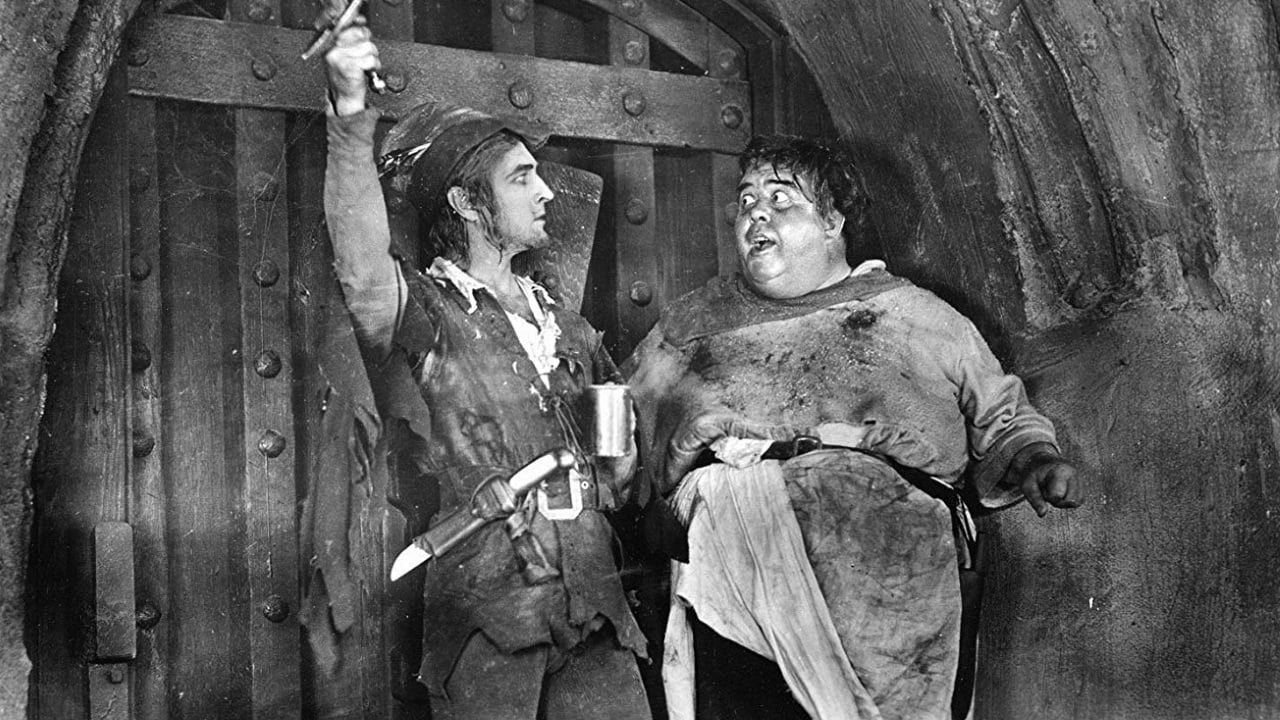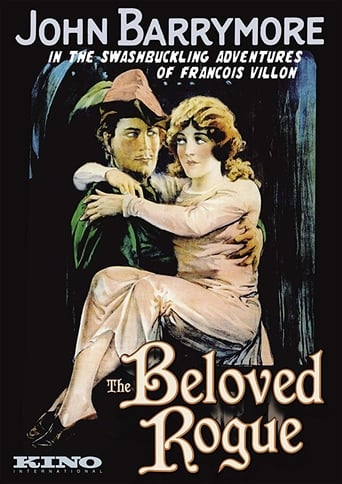



That was an excellent one.
It's fun, it's light, [but] it has a hard time when its tries to get heavy.
View MoreExcellent and certainly provocative... If nothing else, the film is a real conversation starter.
View MoreOne of the film's great tricks is that, for a time, you think it will go down a rabbit hole of unrealistic glorification.
View MoreFrançois Villon (John Barrymore), in his lifetime the most renowned poet in France, is also a prankster, an occasional criminal, and an ardent patriot.This film also stars Conrad Veidt as the king, though it is not one of Veidt's more notable performances. Director Alan Crosland would release his most well-known film, "The Jazz Singer", this same year.This film was lost for some forty years until a beautiful tinted and toned copy was discovered in the late 1960s in the collection of film pioneer Mary Pickford. Pickford, an early champion of film preservation, tried saving all things "United Artist", the production company in which she was a founder.Barrymore says he thought of his acting in this one as being hammy, and he was right. How much this was intended is unclear. Although a comedy to some degree, it is not a complete comedy, and the ham might be a bit out of place.
View MoreIn 15th century Paris, poetic lover John Barrymore (as Francois Villon) leads crowds in an extended celebration of "All Fools' Day" which irks King Conrad Veidt (as Louis XI). Consequently, Mr. Barrymore is banished to the outskirts. After Barrymore is caught sneaking back to the city, Mr. Veidt sentences him to death. Barrymore proves himself cleverer than your usual connoisseur of wine, women, and song. He convinces the superstitions Mr. Veidt their deaths are destined to occur within the same day, and becomes a pampered member of the court. Soon, Barrymore risks his life to rescue beautifully figured Marceline Day (as Charlotte), and save France...This version of "If I Were King" is obviously tailor-made for Barrymore. The United Artists production values are very high.Barrymore was one of the best actors around through the 1920s. He appeared in relatively few films, but they were carefully selected. Here, he is probably at his "hammiest" - which he admitted upon seeing the film at a crowded premiere. Not to be outdone, Veidt chews a fair share of the scenery. Lucy Beaumont leads an accomplished supporting cast. However hammy, Barrymore is highly appealing. He is also, despite reports to the contrary, still in peak physical form. Not only does Barrymore display boundless energy, he plays the last act in a loincloth. Barrymore was now in his mid-forties. His famed "Great Profile" is also very much in evidence.******* The Beloved Rogue (3/12/27) Alan Crosland ~ John Barrymore, Conrad Veidt, Marceline Day, Lucy Beaumont
View MoreFrançois Villon was a real-life poet and rogue who lived in Paris in the 15th century. However, most of what is portrayed in this historical film is actually fiction--from a play created at the beginning of the 20th century. Whereas in the film he met and became friends with Louis XI, in reality he died in his 30s and was never involved in all the intrigues like he was in this film. In reality, he wrote some lovely verse and was frequently on the wrong side of the law--not the combination of a patriot and Robin Hood-like character like he is in the film. Provided you know that the film is nearly 100% fiction, then it's well worth seeing--just don't assume it's a good history lesson.In THE BELOVED ROGUE, Villon is played with wild abandon by John Barrymore. I was also pretty excited to see that his three friends were all played by very familiar faces. Angelo Rossitto, who was the plucky dwarf, played in tons of films over the years and had a very long career. Slim Summerville was a character actor known for adding a touch of comedy to films. Mack Swain is best known as the silent film foil in many of Chaplin's short films and played his partner in THE GOLD RUSH. All four of these men did a nice job and have no complaints---even with Barrymore's rather over-the-top treatment that was rather reminiscent of a Douglas Fairbanks performance. However, the performance I had a serious problem with was Conrad Veidt as King Louis XI. To call this "unsubtle" would be a gross understatement. He played the role like a high schooler who thought he was supposed to be the stereotypical Richard III--skulking about and acting like a demoniacal caricature. While Veidt was wonderful in many, many films (both silent and sound) but here he is just ridiculous.As for the story, it's full of lusty adventure and action--like a swashbuckling film minus the sailing ships. The sets worked out well for all this, as they'd been used the previous year for THE HUNCHBACK OF NOTRE DAME. Both films were set around the same time period.Overall, it's one of the last great silent films. There's a lot to like and the film is a lovely combination of romance, comedy and action. Well worth seeing, though it loses a couple of points for Veidt's overacting as well as the way the film plays fast and loose with history.By the way, this film was also made twice as IF I WERE KING (1920 and 1938) and apparently these two films are closest to the original play. However, in total, six films have been about Villon and tell, more or less, variations on the same tale!
View MoreBesides being entertaining in itself, with plenty of action, wit, and more, this feature gives John Barrymore an excellent role that plays to his strengths and that gives him a lot of good material to work with. Barrymore's vigorous style works well in the role, and he has many opportunities for drama, humor, and romance.The story is based very loosely on the life of the 15th century French poet François Villon, but it really only uses the character and the basics of the historical setting. The character that the script creates, though, is not only a great role for Barrymore, but is well-conceived as a movie character. And if Barrymore's entertaining portrayal of Villon, fanciful though it is, encourages anyone to find out more about the historical Villon, so much the better.(The real Villon was both a worse criminal and a better poet than the movie suggests. A number of his crimes were truly harmful offenses, rather than the impish pranks that he plays in the movie. At the same time, his poetry was quite a bit deeper than is suggested by the occasional light verses in the inter-titles.)Conrad Veidt is cast as King Louis XI, Villon's sometime friend and sometimes persecutor. Veidt gives a really good turn to the character, using his physical posture and mannerisms to suggest the king's complex character.There are a number of good sequences that are sheer entertainment, such as the catapult scene and Villon's first visit to Charlotte's palace, and that are rather impressive on the production end too. The story as a whole is the best kind of historical melodrama, with numerous turns of fortune and plenty going on.
View More